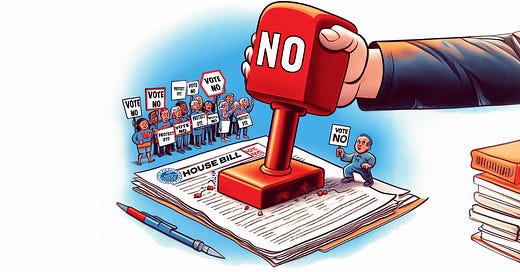Massachusetts Barking Up the Wrong Tree – No Changes Please!
MA House Bill 4130 adds confusion and solves nothing.
I introduce you to Massachusetts House Bill 4130. It failed to pass during the last legislative cycle, but Representative Tackey Chan is trying again to introduce new definitions of wineries under the belief it will increase the excise tax that the state can collect. It is a case of a legislator (who receives sizable contributions, over $110K from the beverage alcohol wholesalers since taking office) dabbling in an industry that they may not fully understand and so have most likely been provided bad or inaccurate information by a single industry stakeholder when this legislation will affect many and should attract input from all members of the industry.
The bill proposes changing section 19F subsection (a) of the direct wine shipper licenses from “is in the business of manufacturing, bottling or rectifying wine.”, to “that is actively operating as a winery”. Without a legal definition of actively operating as a winery it will create confusion for all.
In 2022, seven years since allowing direct sales, 1,238 Direct Wine Shippers sent their products to Massachusetts State residents, combining for more than $81.4m in sales, resulting in a CAGR of 16.8% since the legalization. If you look at the massive progress that MA has made in its DTC sales, you can see they have a continual growing source of funds from excise tax for the state that they would otherwise not have. There is clearly demand for products in MA that the wholesale process is not fulfilling through their network. The retailers in MA, rather than being worried about direct shipments that are clearly filling a void, should be asking the legislators to change the rules to allow them to buy directly from craft producers around the country.
If MA ABCC has a problem with bad actors shipping product into their state without paying taxes, they should take a feather out of the cap of NH and other states and start requiring that the licensed shippers add the tracking numbers to their monthly reports. Match those with the carrier manifests, and you start to see who is not licensed.
MA House Bill 4130 is an example of the type of changes that our national and local associations should be aware of. They may not believe that DTC is a big thing for their members, but if all associations take a passive approach, the local producers’ whole landscape will gently change in a negative way. Growing increasingly important is the need for producers to self-distribute and fulfill retail demand without requiring wholesale distribution.
We also believe that every piece of legislation being changed should have representative testimony from all stakeholders, no matter how small or large the change.
For too long, the wholesale alcohol distribution industry has held an undue influence on US politics, shaping legislation to their advantage while stifling the growth of the DTC shipping industry. The DTC shipping industry, which is still in its early stages, lacks the same influence. However, as the DTC shipping industry continues to grow, it is imperative that it begins to speak up and advocate for its interests, both for the benefit of small American producers and the local economies they support.




